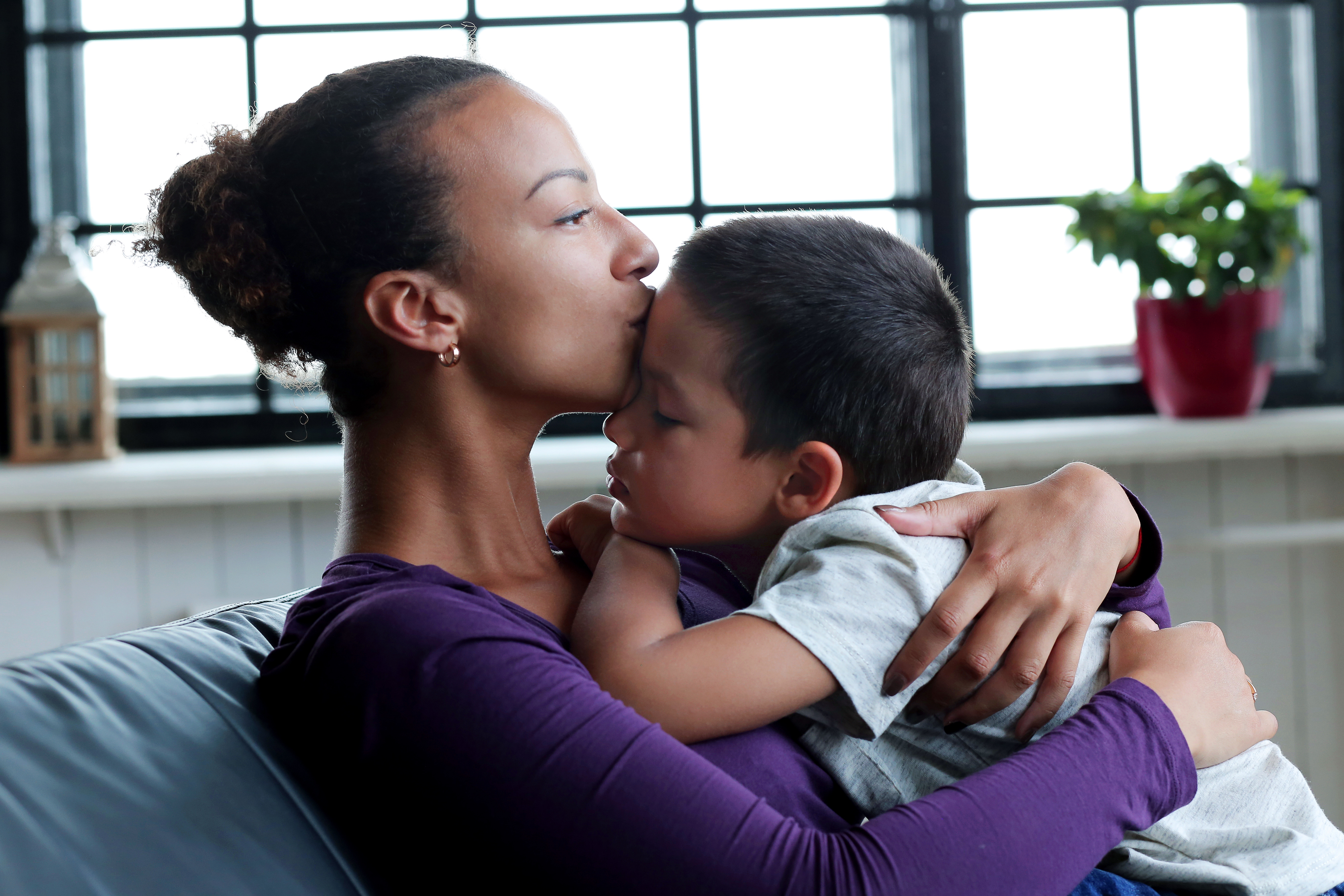What are the main symptoms of anxiety in children?
The main symptoms of anxiety can be grouped under physical symptoms and behavioural symptoms.
Physical symptoms of anxiety in children
If your child is experiencing anxiety, they might complain of physical symptoms such as:
- stomach aches
- nausea
- difficulties breathing
- a faster heartbeat
- muscle tension
- sweatiness
- shakiness
- dizziness
- frequent urination (peeing), especially before leaving the home
- headaches
You may also notice these symptoms in your child without their saying anything.
Behavioural symptoms of anxiety in children
Some behavioural changes that you might notice in your child include:
- increased irritability
- difficulties falling or staying asleep unless, for instance, you sleep in the same room
- difficulties separating from you
- refusal to go to school or do other activities, even fun activities
- difficulties meeting new people
- not speaking to people outside of the family
How children express anxiety
Children who develop an anxiety disorder tend to express certain repeated worries, including concerns that something bad might happen to them or their parent or caregiver or fears about embarrassment, natural disasters, animals and so on. Children may even say they are worried about the future, relationships with others their age and their school performance. These worries are usually so strong that they interfere with a child's everyday activities.
Many younger children may not be able to communicate their anxiety verbally. Instead, they may show it through their behaviour and physical symptoms.
Physical and behavioural symptoms of anxiety in teenagers
The physical symptoms of anxiety are similar for teenagers and children.
There are some differences in the behavioural symptoms of anxiety in teens. Anxious teens may show fewer behavioural symptoms of anxiety in the home but have more difficulties outside. For instance, they might be able to sleep in a room on their own but have more trouble leaving the home and may refuse to attend school or take part in other social activities.
Typically, teens are more aware of their worrying thoughts and express them more clearly than younger children. An anxious teen is likely to express excessive worries about school, their marks and their relationships. They may also be sensitive to issues in the news.
Socially anxious teens typically may express worries about being judged by others their age and may feel uncomfortable being out in public. They may also feel embarrassed about eating in public or using public bathrooms.
These concerns would need to interfere with the teen's everyday life before an anxiety disorder could be considered.
How anxiety is diagnosed
If you have concerns that your child's anxiety is interfering with their daily life, see your child's family doctor or paediatrician, a nurse practitioner or a psychologist. They will talk with you and your child about:
- your concerns and the symptoms that are interfering with your child's everyday routine
- any current stressors in your child's life
- any event or situation that might have triggered the anxiety symptoms
- your child's development (from pregnancy onwards)
- your family's mental health history
- any family stressors
- the status of family relationships.
The health-care provider might ask you and your child, if they are old enough, to answer different questions, or fill out rating scales, to help them make a diagnosis. If the health-care provider identifies a number of signs and symptoms over a certain time (between one month to at least six months, depending on the anxiety disorder), your child might meet the criteria for an anxiety disorder.
Sometimes your child's health-care provider may refer you and your child to a psychiatrist for help with the diagnosis.
What your child's health-care provider can do for anxiety
If your child is diagnosed with an anxiety disorder, you and your child's health-care provider will decide on the best treatment. This decision may need input from other members of your family or your child's teachers.
Your health-care provider may also suggest that your child sees a therapist or psychiatrist or recommend medications or lifestyle changes to help your child. Without treatment, anxiety disorders usually do not improve. In fact, they can often become worse over time.
Further information
For more information on anxiety disorders, please see the following pages:
Anxiety: Treatment with medications
Anxiety: Treatment with psychotherapy and lifestyle changes
Please visit our teen mental health website for teen-specific information on anxiety and anxiety disorders.
Resources
The following books offer useful advice and information about anxiety.
Foa, E.B., & Wasmer Andrews, L. (2006). If Your Adolescent Has an Anxiety Disorder: An Essential Resource for Parents. New York, NY: Oxford University Press
Huebner, D. (2005). What to Do When You Worry Too Much: A Kid’s Guide to Overcoming Anxiety. Magination Press.
Manassis, K. (2015). Keys to Parenting Your Anxious Child. Third edition. New York, NY: Barron’s Educational Series, Inc.
Rapee, R., et al (2008). Helping Your Anxious Child: A Step-by-Step Guide for Parents. Second edition. Oakland, CA: New Harbinger Publications, Inc.
Sheedy Kurcinka, M. (2015). Raising Your Spirited Child: A Guide for Parents Whose Child is More Intense, Sensitive, Perceptive, Persistent, and Energetic. Third edition. New York, NY: HarperCollins Publishers.

